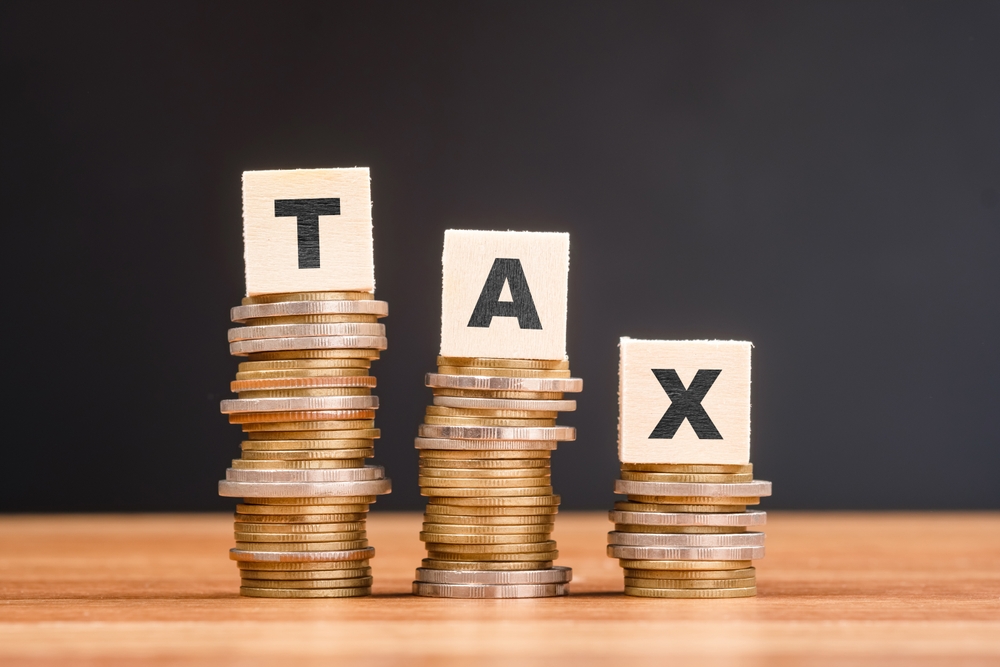Experienced Investor
Everything you need to know about the new tax year…but were afraid to ask

The tax year 2023/24 is now upon us, with higher state pension and benefits payments on the way but increased tax on some investment returns.
Understanding how the tax system will change in 2023/24 can help you make decisions to minimise the amount of tax you need to pay.
Saving money where you can is crucial at the moment as a number of bills are going up from the beginning of April.
Sarah Coles, head of personal finance at Hargreaves Lansdown, says: “It’s going to be a horribly taxing year, as a combination of dramatic cuts to some tax allowances and freezes to others takes a nasty toll.
“There’s the odd glimmer of hope in some of the new pension rules, but whether the changes bring new opportunities or more horrible headaches, the earlier you can take action in the new tax year, the sooner you can protect your money from the clutches of the taxman.”
Income tax bands
There are no changes to basic and higher rate income tax bands this year – these are frozen until 2028.
In England, Wales and Northern Ireland (the system is different in Scotland), you start to pay income tax on annual earnings of more than £12,570, charged at 20%. You then pay tax of 40% on earnings over £50,270 a year.
If your wages have increased, freezing the tax bands might mean you pay more tax than before.
For the top earners, from today the additional rate tax threshold (45%) has fallen from £150,000 to £125,140. The £100,000 level at which the personal allowance starts to be withdrawn has remained frozen, as has the £50,000 level from which you start to lose child benefit.
State pensions and benefits uprated
The new tax year brings a 10.1% rise in the state pension – this will kick in on Monday. A full new state pension will be £10,600 per year and a full basic state pension will be £8,122 per year.
Universal credit is going up too. The amount you get depends on your age and circumstances but, as an example, a single person aged over 25 receiving universal credit will get £405.96 more in the coming year than during the last 12 months.
“Child benefit is one of the many state benefits that will increase by 10.1% this April, as the government raised rates by inflation,” says Laura Suter, personal finance expert at AJ Bell, “It means that the weekly rate for the eldest child will rise from £21.80 to £24 while the rate for other children will increase from £14.45 to £15.90 a week. This increase means that a parent of two children will get £189.80 a year more in benefit in 2023/24.”
Tax on investments
The dividend tax allowance falls from £2,000 to £1,000 from today – and will halve again next April. This will hit anyone earning dividends on investments held outside of tax wrappers as soon as they exceed the new smaller allowance. It will also affect anyone who owns their own company and pays themselves in dividends.
Investors face paying more capital gains tax (CGT) too. CGT is paid on any profits you make on investments, including stock market investments and second properties. The annual allowance has been slashed from £12,300 to £6,000 – and will be halved again to £3,000 next April.
“Thankfully, there is a route around this if you’re able to put investments into your ISA or pension instead, where dividends and gains are tax free,” says Suter.
Private pensions
The annual allowance – the total you can contribute to a pension each year while still benefiting from tax relief – has now been increased from £40,000 to £60,000. But you can still only receive tax relief on an amount worth up to 100% of your earnings. So, for example, if you earned £48,000 this tax year then that would be the maximum you could contribute and still get tax relief.
The money purchase annual allowance – the amount you can contribute to your pension each year after you’ve flexibly accessed your defined contribution pension – has been increased from £4,000 a year to £10,000 a year.
After years of being frozen at £1,073,100, the lifetime allowance has been abolished. From today, the tax charge that would apply to funds over this amount will be removed.
Minimum wage
The National Living Wage has gone up from £9.50 to £10.42 per hour for workers over the age of 23. The 9.7% increase equates to an annual payrise of £1,677 for someone who is full time on the minimum wage.
Younger people are paid less but the minimum they must be paid has gone up too. Workers aged 21 to 22 will now get £10.18 per hour (up from £9.18 per hour) while 18 to 20-year-olds will get at least £7.49 per hour (up from £6.83). Under 18s must receive a minimum of £5.28 (up from £4.81).